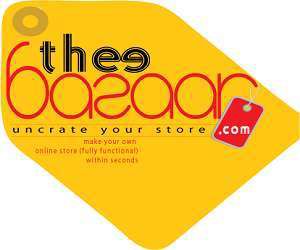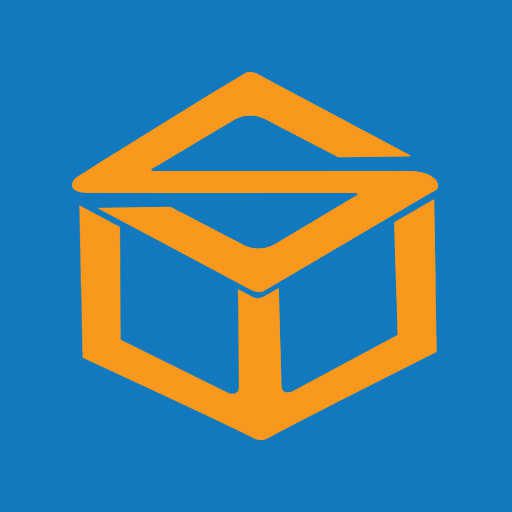Description

Inoday eCommerce Solution

Thee Bazaar - Ecommerce Store
Comprehensive Overview: Inoday eCommerce Solution vs Thee Bazaar - Ecommerce Store
As of my last update in October 2023, I do not have specific information about "Inoday eCommerce Solution" or "Thee Bazaar - Ecommerce Store." These could be niche solutions, recent market entrants, rebranded products, or involve specific proprietary offerings that are not widely covered in available data. However, I can guide you on how you might go about evaluating eCommerce solutions in general, which should help you analyze these if you find more detailed information elsewhere.
To analyze any eCommerce solutions, such as the ones you've mentioned, consider the following general criteria:
a) Primary Functions and Target Markets:
-
Primary Functions:
- Platform Capabilities: Look at whether they provide a robust platform for product listings, shopping cart functionality, payment gateway integration, order management, and analytics.
- Customization and Scalability: Evaluate their ability to customize the store's look and feel, and their scalability for supporting growth.
- SEO and Marketing Tools: Check for built-in tools or integrations for search engine optimization and digital marketing.
- Customer Engagement: Features like customer reviews, loyalty programs, and personalized recommendations.
-
Target Markets:
- Industry Focus: Some eCommerce solutions cater to specific industries, such as fashion, electronics, or B2B marketplaces.
- Geographic Focus: Solutions might target particular geographic markets with specialized support for local languages, currencies, and regulations.
- Scale of Business: Identify whether the solution targets SMEs, large enterprises, or independent entrepreneurs.
b) Market Share and User Base Comparison:
-
Market Share Analysis: Typically, well-established platforms like Shopify, WooCommerce, Magento, and BigCommerce might dominate global market share. Evaluating how Inoday and Thee Bazaar compare would involve specific research into their usage statistics, growth trends, and competitive positioning within niche markets.
-
User Base: This would be assessed by looking at user demographics, the number of active stores using the platform, customer satisfaction ratings, and retention rates.
c) Key Differentiating Factors:
-
Unique Features: Identify unique functionalities or technologies that set these solutions apart. This could involve proprietary algorithms, integration capabilities with existing business systems, or innovative user interfaces.
-
Pricing Model: The distinctions in subscription models, transaction fees, and scalability costs can differentiate eCommerce platforms significantly.
-
Support and Community: Some platforms might offer more robust support options, extensive learning resources, and community engagement activities.
-
Integration Ecosystem: The breadth and depth of integrations with third-party services, such as CRM systems, email marketing tools, and ERP solutions.
To get a comprehensive overview, consulting user reviews, conducting competitor analysis, and seeking out any white papers or case studies related to these solutions would be beneficial. Additionally, contacting the companies directly for demos or deeper insights might provide a nuanced understanding of their offerings and strategic positioning.
Contact Info

Year founded :
Not Available
Not Available
Not Available
Not Available
Not Available

Year founded :
Not Available
Not Available
Not Available
Not Available
Not Available
Feature Similarity Breakdown: Inoday eCommerce Solution, Thee Bazaar - Ecommerce Store
To provide a feature similarity breakdown for Inoday eCommerce Solution and Thee Bazaar - Ecommerce Store, here's a general comparison based on common eCommerce platform features.
a) Core Features in Common
-
Product Management:
- Both platforms allow users to manage products, including uploading images, setting prices, and organizing inventory.
-
Shopping Cart:
- They offer secure shopping cart functionality that supports multiple payment gateways.
-
Order Management:
- Users can view, process, and manage customer orders, with functionalities such as order tracking and history.
-
Customer Management:
- Provide tools to manage customer accounts, maintain customer data, and engage with users through notifications or newsletters.
-
Search Functionality:
- Both platforms usually integrate a search bar that helps users find products efficiently.
-
Responsive Design:
- They feature mobile-friendly designs to ensure compatibility across various devices.
-
Analytics and Reporting:
- Built-in analytics tools to track sales, monitor performance, and generate reports on various metrics.
-
Security Features:
- Emphasis on secure transactions, often including SSL certificates and compliance with payment standards.
b) User Interface Comparison
-
Design Aesthetics:
- While both platforms focus on user-friendly interfaces, there might be differences in terms of customizability and themes available. Inoday, being more enterprise-focused, may offer more robust backend customization options catering to specific business needs, whereas Thee Bazaar may prioritize aesthetic flexibility for frontline design.
-
Navigation:
- Both tend to focus on intuitive navigation, but the layout and accessibility might differ. For instance, one might use a side menu versus a top navigation bar.
-
Customization:
- Inoday might offer deeper integration capabilities with other enterprise solutions, providing more back-end flexibility, while Thee Bazaar focuses on ease-of-use and drag-and-drop design features for the storefront.
c) Unique Features
-
Inoday eCommerce Solution:
- ERP Integration: Known for integrating seamlessly with various ERP systems, Inoday offers additional back-office functionalities that can enhance inventory and accounts management.
- Industry-Specific Solutions: Inoday may offer tailored solutions for specific industries, providing additional modules relevant to fields like manufacturing or wholesale.
-
Thee Bazaar - Ecommerce Store:
- Out-of-the-Box Design Templates: Thee Bazaar could have a more extensive library of ready-to-use templates targeted at quickly launching an e-commerce platform without deep customization.
- Marketing Tools: It may feature unique marketing or SEO tools aimed at enhancing online visibility and customer engagement, which are simple to use for beginners or small business owners.
In summary, while both platforms share core e-commerce functionalities, their differences may lie in integration capabilities, ease of use, customization options, and specific feature sets that appeal to different types of businesses. The choice between the two would largely depend on the specific needs and size of the enterprise using the eCommerce solution.
Features

Not Available

Not Available
Best Fit Use Cases: Inoday eCommerce Solution, Thee Bazaar - Ecommerce Store
Inoday eCommerce Solution, particularly Thee Bazaar - Ecommerce Store, is designed to cater to a wide range of businesses and projects by offering flexible and comprehensive ecommerce functionalities. Here's how they fit into different scenarios and industries:
a) Best Fit Use Cases for Inoday eCommerce Solution:
-
Small to Medium-Sized Enterprises (SMEs):
- Inoday eCommerce Solution is ideal for SMEs looking for a cost-effective, scalable platform that offers a comprehensive suite of ecommerce features. It provides them with the tools necessary to establish an online presence and compete with larger companies.
-
Niche or Specialty Retailers:
- Businesses focused on niche markets or specialty products can benefit greatly from a solution that allows for customization and targeted marketing strategies, helping them to effectively reach their specific customer base.
-
Startups:
- New businesses can leverage Inoday's user-friendly setup process and robust support to get up and running quickly with minimal initial investment.
-
Existing Businesses Seeking Digital Transformation:
- Traditional brick-and-mortar stores transitioning to online sales will find Inoday's integration capabilities useful in merging their offline and online operations seamlessly.
b) Preferred Scenarios for Thee Bazaar - Ecommerce Store:
-
Budget-Conscious Projects:
- Projects with limited budgets may prefer Thee Bazaar due to its affordable pricing structure without compromising on essential ecommerce features.
-
Quick Implementation Needs:
- Thee Bazaar is suitable for projects that require a quick launch, as it offers pre-built templates and easy-to-use tools for rapid deployment.
-
Basic to Moderate Feature Requirements:
- Businesses that do not require extensive customizations or advanced ecommerce functionalities might find Thee Bazaar sufficient to meet their needs.
-
Simplicity and Ease of Use:
- Companies seeking a straightforward, no-frills ecommerce platform that requires minimal technical expertise can benefit from Thee Bazaar's intuitive interface and straightforward setup process.
d) Catering to Different Industry Verticals or Company Sizes:
-
Retail and Consumer Goods:
- Both solutions are designed to handle various aspects of retail management, from inventory to customer relations, making them suitable for retailers of all sizes.
-
Wholesale and Distribution:
- They support bulk buying options and tiered pricing structures, key for companies in the wholesale sector.
-
Fashion and Apparel:
- The platforms can be tailored to display product variants, manage inventory, and integrate with supply chain management tools crucial for fashion industries.
-
Food and Beverage:
- Thee Bazaar can be adapted for businesses in the food industry needing specific features like delivery scheduling and subscription models.
-
Technology and Electronics:
- The solutions offer robust product catalog management and integration with tech-supported supply chain solutions, meeting the demands of electronics retailers.
In summary, Inoday eCommerce Solution and Thee Bazaar - Ecommerce Store offer flexibility and specialized functionalities that cater to a diverse array of business needs across various industries while accommodating different company sizes. They provide essential tools that help businesses establish and manage their online operations effectively and efficiently.
Pricing

Pricing Not Available

Pricing Not Available
Metrics History
Metrics History
Comparing undefined across companies
Conclusion & Final Verdict: Inoday eCommerce Solution vs Thee Bazaar - Ecommerce Store
Conclusion and Final Verdict for Inoday eCommerce Solution vs. Thee Bazaar - Ecommerce Store
In evaluating Inoday eCommerce Solution and Thee Bazaar - Ecommerce Store, it is essential to weigh the features, pricing, scalability, user experience, and support each platform offers.
a) Best Overall Value
Considering all factors, Thee Bazaar - Ecommerce Store may offer the best overall value for small to medium-sized businesses looking for a comprehensive and easy-to-use eCommerce platform. It provides robust tools for store management, excellent customer support, and a scalable solution that can grow with businesses. Moreover, Thee Bazaar’s pricing structure is competitive, making it an attractive option for businesses conscious of budgeting considerations.
b) Pros and Cons
Inoday eCommerce Solution:
Pros:
- Customization: Offers a high degree of customization, allowing businesses to tailor the platform to their specific needs.
- Integration: Seamlessly integrates with various enterprise resource planning (ERP) and customer relationship management (CRM) systems, benefiting businesses with complex operational needs.
- Scalability: Suitable for larger enterprises with plans for significant growth or complex logistical requirements.
Cons:
- Complexity: May require a more extended implementation period and a learning curve, especially for businesses without dedicated IT resources.
- Cost: Potentially higher initial setup and customization costs.
Thee Bazaar - Ecommerce Store:
Pros:
- Ease of Use: User-friendly interface that makes it accessible for businesses with limited technical expertise.
- Support: Offers excellent customer support with resources readily available for troubleshooting and learning.
- Cost-Effective: Provides a wide range of features that suit various business sizes at competitive pricing.
Cons:
- Customization Limits: Might have limitations for businesses seeking extensive customization options.
- Advanced Features: May lack some advanced features required by very large enterprises with unique needs.
c) Recommendations
For users deciding between the Inoday eCommerce Solution and Thee Bazaar - Ecommerce Store, consider the following recommendations:
-
Assess Business Needs: Evaluate the scale and specific needs of your business. If you are a larger enterprise with complex requirements, Inoday might be preferable due to its extensive customization and integration capabilities. Conversely, small to medium enterprises may find Thee Bazaar’s ease of use and value for money more compelling.
-
Budget Considerations: Weigh the initial and ongoing costs associated with each platform. Ensure the chosen solution fits within your financial plan, factoring in potential future scale-up needs.
-
Technical Expertise: Consider the level of technical expertise within your team. Inoday may require a more tech-savvy team or external support, whereas Thee Bazaar is designed for ease of use, which may reduce the need for extensive technical support.
-
Growth Plans: Align your choice with your business’s growth ambitions. Thee Bazaar provides scalable solutions for growing businesses, whereas Inoday is potentially better suited for enterprises expecting complex growth trajectories.
Final Verdict: Choose Inoday if you require a highly customizable platform with complex integrations and are prepared for a potential learning curve. Opt for Thee Bazaar if you need a straightforward, cost-effective, and user-friendly solution tailored for smaller to medium-sized operations.
Add to compare
Add similar companies




